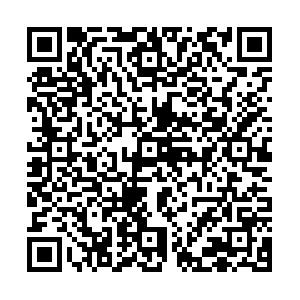Construction and Application of Node Health Education Model Based on Health Information Needs of Patients Undergoing in Vitro Fertilization-embryo Transfer
-
摘要:
目的 以健康信息需求为导向,构建体外受精-胚胎移植(IVF-ET)助孕患者治疗节点健康教育模式并应用,评价其效果。 方法 采用类实验研究方法,对照组采用常规健康教育模式,实验组采用以健康信息需求为导向的节点健康教育模式,对比2组患者健康教育后焦虑、抑郁评分,IVF-ET认知度,满意度。 结果 干预后,实验组患者焦虑、抑郁得分分别是([1(0,2)], [1(0,2)])分,均显著低于对照组([2(0,4)],[2(0,4)])分,(P均 < 0.001);实验组患者IVF-ET认知度得分显著高于对照组(76.63±9.67 VS 70.19±11.92 ),(P < 0.001);实验组满意度高于对照组,差异有统计学意义(P < 0.05)。 结论 以健康信息需求为导向的节点健康教育模式能提高患者IVF-ET认知度、满意度,缓解其焦虑抑郁情绪,值得在临床实践中推广并应用。 Abstract:Objective To construct and apply the health education model for in vitro fertilization-embryo transfer (IVF-ET) assisted patient node based on health information needs, and to evaluate its effect. Method Cases studied were divided into the control group and the experimental group and class experimental research method was adopted. The control group used the conventional health education mode, and the experimental group used the nodes-oriented health education mode oriented by health information needs. The scores of anxiety and depression, the recognition of IVF-ET knowledge and the satisfaction were compared between the two groups. Results After the intervention, the scores of anxiety and depression in the experimental group ([1(0, 2)], [1(0, 2)]) were significantly lower than those in the control group ([2(0, 4)], [2(0, 4)])(P < 0.001). The recognition score of the experimental group was significantly higher than that of the control group (76.63±9.67 VS 70.19±11.92)(P < 0.001). The satisfaction of the experimental group was higher than that of the control group of routine health education, and the difference was statistically significant (P < 0.05). Conclusion Node health education model oriented by patients’ health information needs can improve patients’ knowledge awareness and satisfaction, and relieve patients’ anxiety and depression. It is worthy of clinical reference and promotion. -
表 1 2组患者基本情况比较 [
$ \bar x \pm s $ /n(%)]Table 1. Comparison of general data between the 2 groups [
$ \bar x \pm s $ /n(%)]项目 对照组(n = 85) 实验组(n = 85) t/χ2 P 年龄 30.82 ± 5.04 31.59 ± 5.15 −0.979 0.329 学历[n(%)]
小学
初中
高职中
本专科
硕士以上
4(4.71)
17(20.00)
16(18.82)
46(54.12)
2(2.35)
6(7.06)
23(27.06)
15(17.65)
40(47.06)
1(1.18)2.097 0.718 家庭月收入(元)
小于1万
1~2万
超过2万
56(65.88)
17(20.00)
12(14.12)
64(75.29)
14(16.47)
7(8.24)2.139 0.343 不孕年限(a)
不孕类型[n(%)]
原发性不孕
继发性不孕3.01 ± 0.93
43(50.59)
42(49.41)3.56 ± 2.44
52(61.18)
33(38.82)−1.947
1.9330.054
0.164表 2 2组干预前后GAD-7、PHQ-9评分比较[M(P25,P75)]
Table 2. Comparison of GAD-7 and PHQ-9 scores of 2 groups before and after intervention [M(P25,P75)]
项目 对照组
(n = 85)实验组
(n = 85)z P GAD-7评分 干预前
干预后
z
P
PHQ-9评分
干预前
干预后
z
P[3(1,6)]
[2(0,4)]
−1.416
0.157
[1(0,5)]
[2(0,4)]
−0.486
0.627[3(1,5)]
[1(0,2)]
−3.506
< 0.001*
[2(0,4.5)]
[1(0,2)]
−3.90
< 0.001*−0.264
−3.775
−0.473
−3.220.792
< 0.001*
0.636
0.001**P < 0.05。 表 3 2组干预前后认知度评分比较[(
$ \bar x \pm s $ ),分]Table 3. Comparison of cognition scores between 2 groups before and after intervention [(
$ \bar x \pm s $ ),scores]项目 对照组(n = 85) 实验组(n = 85) t P 认知度评分
干预前
干预后
t
P
60.57 ± 14.79
70.19 ± 11.92
−12.042
< 0.001*
60.61 ± 14.10
76.63 ± 9.67
−9.568
< 0.001*
−0.022
−3.864
0.982
<0.001**P < 0.05。 表 4 2组患者宣教后满意度比较 [n(%)]
Table 4. Comparison of patients’ satisfaction after health education between 2 groups [n(%)]
满意度 对照组(n = 85) 实验组(n = 85) χ2 P 非常满意 30(35.29) 49(57.65) 8.537 0.03* 满意 55(64.71) 36(42.35) *P < 0.05。 -
[1] 钮芳芳,张艳,钱佳蓉,等. 体外受精-胚胎移植助孕女性促排卵期药物管理的知信行现状调查[J]. 护士进修杂志,2021,36(24):2280-2283. [2] 孙慧霞,孙会,李国正. 辅助生殖技术助孕患者健康信息需求现状及其影响因素分析[J]. 中华生殖与避孕杂志,2017,37(8):664-666. [3] 戴晓凤,林蓉金,陈剑锋,等. 辅助生殖助孕女性健康信息需求及其影响因素的相关性调查[J]. 湖北民族学院学报(医学版),2019,36(3):13-17. [4] Vause T D R,Allison D J,Vause T,et al. Comparison of a web-based teaching tool and traditional didactic learning for in vitro fertilization patients:A preliminary randomized controlled trial[J]. J Obstet Gynaecol Can,2018,40(5):588-594. doi: 10.1016/j.jogc.2017.08.029 [5] 倪燕萍,曹文丽. 协同生殖健康教育模式对接受体外受精-胚胎移植治疗的不孕患者认知水平及不良反应的影响[J]. 中国性科学,2021,30(4):106-108. doi: 10.3969/j.issn.1672-1993.2021.04.033 [6] 王丙娟,孙会,孙慧霞. 体外受精-胚胎移植助孕患者健康信息需求的质性研究[J]. 中华生殖与避孕杂志,2017,37(9):750-753. [7] 纪晓娟,孙荣荣,陆翰梅. 以问题为导向护理教育模式对IvF-ET不孕症患者疾病知识认知及依从性的影响[J]. 基层医学论坛,2021,25(12):1700-1701. [8] 陈丹丹. 辅助生殖技术助孕患者健康信息需求量表的研制与评价[D]. 郑州: 郑州大学硕士学位论文, 2017. [9] 赵晓英,郭海燕,李敏,等. 健康信息满足干预对多囊卵巢综合征患者行体外受精-胚胎移植术的影响[J]. 护理实践与研究,2019,16(11):95-97. [10] 秦泽慧. PHQ-9和GAD-7量表在功能性胃肠病精神心理评估的应用 [D]. 右江: 右江民族医学院硕士学位论文, 2019. [11] 陈妍. 健康教育对女性不孕不育患者知识认知、行为及心理的影响[J]. 中国健康教育,2017,33(5):456-460. [12] 远秀芹. 健康教育联合心理干预在体外受精-胚胎移植围术期中的应用效果及对母婴结局的影响[J]. 国际护理学杂志,2019,24(38):4102-4105. [13] 倪颖,童琛晔,韩迟迟,等. 体外受精-胚胎移植患者电子信息化健康教育模式的构建和效果评价[J]. 中华生殖与避孕杂志,2019,39(5):399-402. [14] 吕永利,王培红,罗勋高,等. 基于患者需求的健康教育在体外受精-胚胎移植取卵患者中的应用[J]. 中国生育健康杂志,2019,30(3):248-251. [15] 阚丽君,杜培娟,邓春梅,等. 女性不孕症患者心理体验质性研究的Meta整合[J]. 天津护理,2021,29(4):408-413. [16] Massarotti C,Gentile G,Ferreccio C,et al. Impact of infertility and infertility treatments on quality of life and levels of anxiety and depress ion in women undergoing in vitro fertilization[J]. Gynecological Endocrinology:The Official Journal of The International Society of Gynecological Endocrinology,2019,35(6):485-489. doi: 10.1080/09513590.2018.1540575 [17] Zhou F J,Cai Y N,Dong Y Z. Stress increases the risk of pregnancy failure in couples undergoing IVF[J]. Stress,2019,22(4):414-420. doi: 10.1080/10253890.2019.1584181 [18] Ahmadizadeh S,bozorgi A S,kashani L. The role of information therapy in reducing anxiety in patients undergoing in?vitro fertilisation treatment[J]. Health Info Libr J,2017,34(1):86-91. doi: 10.1111/hir.12169 [19] 钟媛. 标准化宣教模式在体外受精-胚胎移植患者健康教育中的应用评价[J]. 基层医学论坛,2019,23(27):3957-3958. [20] 张妞,徐菊华,张涛. 对不孕症夫妇开展生殖伦理教育和培训的探讨[J]. 中国医学伦理学,2016,29(5):839-841. doi: 10.12026/j.issn.1001-8565.2016.05.33 [21] 蔡敏,蔡郁,代晓微,等. 基于健康需求的宣传教育模式在体外受精—胚胎移植患者中的应用[J]. 中国妇幼保健,2019,34(10):2188-2190. [22] Jin H,Lin W,Lu L,et al. Conventional thyroidectomy vs thyroid thermal ablation on postoperative quality of life and satisfact ion for patients with benign thyroid nodules[J]. Eur J Endocrinol,2021,184(1):131-141. doi: 10.1530/EJE-20-0562 [23] 闫旻,唐妙申,杜悦,等. 阶段式健康教育对首次试管婴儿助孕患者的影响[J]. 齐鲁护理杂志,2020,26(9):34-36. [24] 田新显. 基于微信的健康教育对体外受精-胚胎移植患者治疗结局的影响[J]. 河南医学研究,2019,28(13):2467-2468. doi: 10.3969/j.issn.1004-437X.2019.13.085 -







 下载:
下载: 


